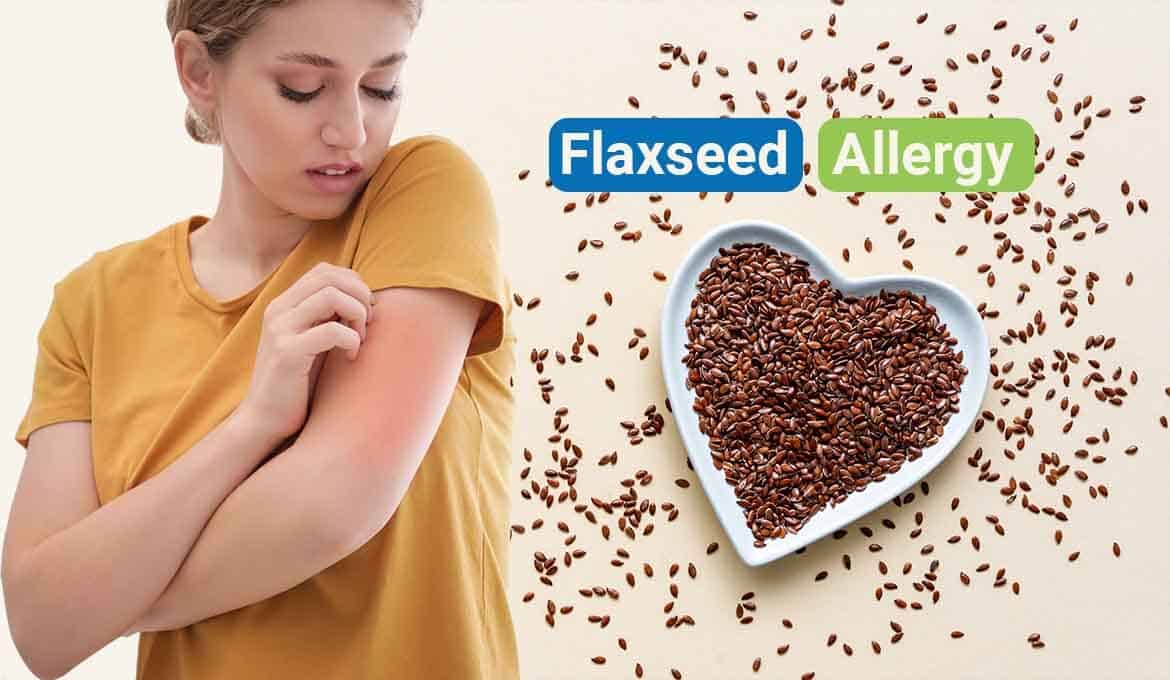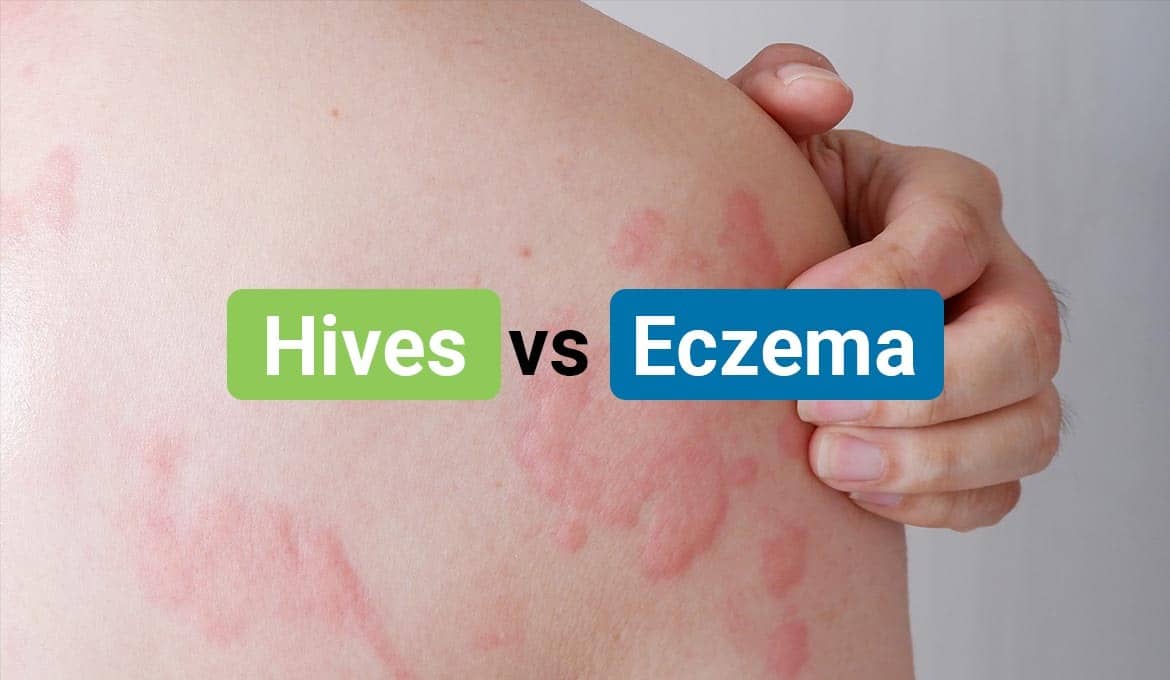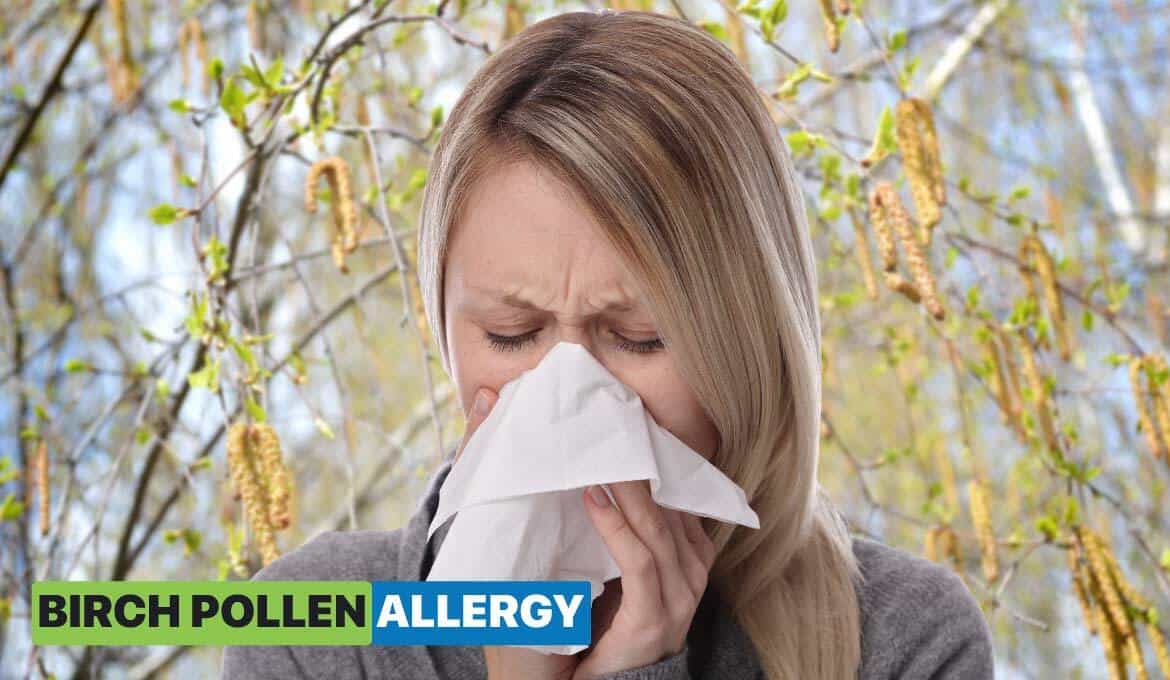
Food allergies can be difficult to deal with. The same food that offers multiple health benefits to others can cause concern for you. Avoiding such food groups can be a hassle and can constantly weigh in the back of your mind, especially while eating out.
Flaxseeds are a popular health food containing omega-3 fatty acids, fibers, and other nutrients. It can be a nutritious addition to the diet of most people. However, for those with an allergy, it might be the cause of allergic reactions that can lead to a number of symptoms.
This article examines flax seed allergy, its symptoms, causes, and possible treatment options.
What is Flaxseed Allergy?
Flaxseed allergy is a type of food allergy triggered by the consumption of flaxseeds. Like other food allergies, it can cause adverse reactions in the body on consumption and can be lethal in rare cases.
The immune system misinterprets the proteins in flaxseed, resulting in an allergic reaction. An allergic reaction is set off by this, which can have minor to severe effects.
Even though flaxseed allergies are generally uncommon, they can occasionally be extremely uncomfortable or even fatal.
Symptoms of Flaxseed Allergy
Like most food allergies, the symptoms of flaxseed allergy vary from person to person, depending on several factors.
Some common symptoms of flaxseed allergies are:
- Itching: You may experience irritation and want to scratch constantly.
- Redness: You may notice an unusual redness on your skin.
- Swelling: Your skin might seem swollen or enlarged.
- Nausea: You may have a vomiting sensation or feel uneasy.
- Hives: It is a type of skin reaction; you might feel itching.
- Gastrointestinal discomfort: You may experience nausea, irritable bowel movements, constipation, gas, and bloating.
- Vomiting: You might feel like throwing up or emptying your stomach.
- Trouble breathing: You may feel that your chest is clogged and experience shortness of breath.
If you experience any of the above symptoms, seek medical help immediately to avoid any risk.
Cause of Flaxseed Allergy
Flaxseed allergy is a food allergy that affects certain people due to their immune system’s adverse reaction to specific food groups. The allergic reaction is triggered when a person suffering from this condition comes in contact with an allergen.
Allergens are substances that trigger allergic reactions. They are antigens that cause abnormal reactions in the immune system.
These substances are generally harmless and may even be beneficial to individuals without allergies. They are generally identified as certain proteins within those food groups.
However, for those with an allergy, the immune system mistakes these substances to be a threat and reacts vigorously to produce antibodies called IgE (Immunoglobulin E) to fight this perceived threat.
This triggers the release of chemicals like histamines in the body, which can prove counterproductive in the absence of actual threats, infection, or injuries.
This leads to adverse side effects like hives, itching, swelling, and in extreme situations, a life-threatening condition called anaphylaxis.
In this case, flaxseeds are the allergens that can trigger allergic reactions in afflicted individuals. It is caused due to certain proteins present in flaxseeds which trigger the immune system of those with the condition.
The allergy is triggered when the afflicted individual orally consumes or nasally inhales flaxseeds. Sometimes, allergies might also be triggered by contact with sensitive body areas.
Diagnosis
To identify whether you have an allergy, your healthcare provider may recommend the following tests:
- Physical examination: One of the primary ways to identify flaxseed allergy is by conducting a thorough physical examination that can reveal or rule out other medical issues.
- Skin test: A tiny volume of proteins in typical allergens will be stabbed into your skin as part of a skin-prick test. If you are allergic, the test site on your skin is likely to turn into a bump (hive).
- Blood test: The number of allergy-causing antibodies called Immunoglobulin E (IgE) in your bloodstream is measured by a procedure called Specific IgE (SIgE) blood testing, also known as Radioallergosorbent Test (RAST) or ImmunoCAP testing. A sample of blood is then sent to a laboratory so that it can be examined for signs of potential allergy sensitivity.
- Elimination diet: For a couple of weeks, your doctor may advise you to cut off foods that could trigger an allergic reaction and then ask you to add them to your diet later gradually. The doctor will be able to relate symptoms to particular foods later.
Flaxseed Allergy Prevention
Prevention is indeed better than cure. It is safer to attempt to prevent allergic reactions than to treat them. Here are some preventive measures for flaxseed allergy:
Avoidance: Eliminating the allergen from your diet and ensuring that you take steps to avoid the allergen when eating out is the best way to prevent allergic reactions.
It is vital that you let your friends and family know about your allergy so that they can accommodate your dietary needs when you have meals with them.
Cooking before consumption: Cooking the food group containing allergens can break down the protein within it. This helps prevent allergic reactions as they are triggered by proteins within the allergy-causing food groups.
Treatment for Flax Seed Allergy
It is crucial for those with allergies to learn how to treat them. This is because there is a constant looming threat of developing allergic reactions at any time, and one must be prepared for it.
The treatment options for flaxseed allergies are:
a). Desensitization:
In cases of mild allergy, it is possible to treat the allergy by slowly desensitizing the body to the allergen. This can be done by consuming small quantities of the allergen and increasing the dosage slowly over a period of time.
Over time the body can lose sensitivity to the allergen, and adverse immune system responses can be avoided.
b). Epinephrine:
This medication is recommended for severe allergic reactions like anaphylaxis shock. The device is combined with a syringe and a covered needle that injects a single dose of epinephrine when injected to your thigh.
If your healthcare provider has recommended epinephrine for you, make sure you carry it with you everywhere. It is also important to know how to use it and always replace epinephrine after every use.
c). Antihistamines:
These drugs can reduce the symptoms and should be taken when exposed to an allergy-causing food to help relieve itching or hives. However, antihistamines cannot be used to treat severe allergies.
Conclusion
Dealing with allergies can be difficult. It is essential that you get to know that you have an allergy to understand it and tackle it in a more effective manner.
If you are concerned about a flaxseed allergy, avoid exposure to the food until you consult your doctor. After eating the food, if you have a mild reaction, antihistamines might help you relieve the discomfort. If you have severe symptoms of anaphylaxis, seek emergency help from your doctor.
FAQs
1. Is flaxseed allergy common?
Ans: No, flaxseed allergy is very rare. It might cause discomfort, and sometimes it can be life-threatening.
2. How do you know if you're allergic to flaxseed?
Ans: If you experience itching, rashes, swelling, or redness after consuming flaxseed, then there is a high chance that you might be allergic to flaxseeds.
3. Are flax seeds a high allergen?
Ans: Yes, flax seeds are considered potential allergens. Since it is widely used in energy bars, protein bars, and other food products, it can be difficult to identify.
4. Can your body digest flax seeds?
Ans: Many nutrients suggest powdered flaxseeds rather than unrefined flaxseeds because powdered flaxseed is easier to digest.
Read Also:












